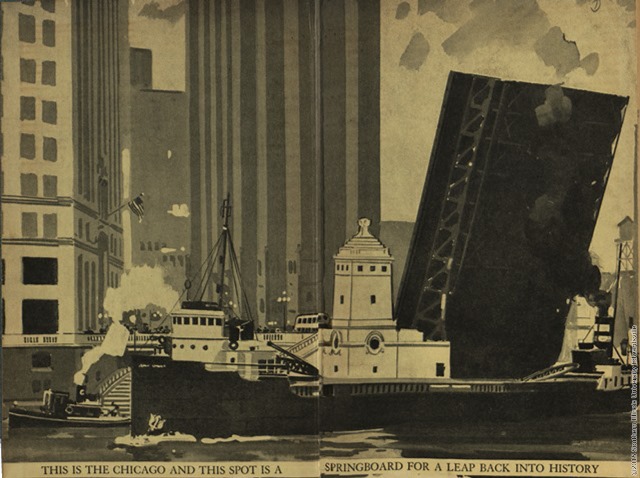"Old Folks at Home" by Stephen C. Foster, a song about the Suwannee River from Songs of Rivers of America, pp. 126-127:
[alternate link to sound file: click here]
Regionalism as a literary idea
Regionalism often refers to literature focused on local color, customs, folklore, and dialect. In the 1920s, however, regionalism took on another meaning as the name of a literary and artistic movement. Regionalists argued that culture rooted in the specific geographical areas of the country and growing out of the experience, folklore, and literature of those areas could provide the seedbed for change and growth. The movement explicitly criticized the forces of modernism and industrialization sweeping through the country.
The regionalists were strongly influenced by several authors including Frederick Jackson Turner and Lewis Mumford. Turner's work on the frontier and American sectional history inspired a generation of historians and social critics. Lewis Mumford's 1926 book The Golden Day built on these ideas. Mumford outlined the social and cultural history of New England drawing connections between the isolation of the landscape and the development of small manufacturing, the tradition of town hall meetings and participatory democracy, and the role of Puritan theology in the intellectual development of the region. He argued that the Puritan preference for austerity influenced later intellectual movements. These included the belief advocated by Ralph Waldo Emerson and Henry David Thoreau that a simple life could lead one closer to God. The Golden Day described an organic model for social change with the detritus of dying social forms contributing to the development of new ideas.
The regionalists believed that a similar process could be replicated in other geographic regions. The Rivers of America series was not an explicit expression of this belief but rather a first step in the process. This process included the documentation and expression of regional identity through popular art and literature. Examples of regionalism can be found in the paintings of Thomas Hart Benton and Grant Wood. The movement can be seen in the bas relief sculptures of buffalo and prairie that adorn public buildings in Nebraska. The literary effort included authors, folklorists, and historians from every region in the country.

-- Written by Matthew Paris
References:
Fitzgerald, Carol. The Rivers of America: A Descriptive Bibliography. New Castle: Oak Knoll Press, 2001.
Mumford, Lewis. The Golden Day: A Study in American Experience and Culture. New York: Boni and Liveright, 1926.
Song of Rivers of America. Edited by Carl Carmer; music arranged by Dr. Albert Sirmay. New York: Farrar & Rinehart, 1942.
Turner, Frederick Jackson. The Significance of the Frontier in the American History. New York: Ungar, 1963.